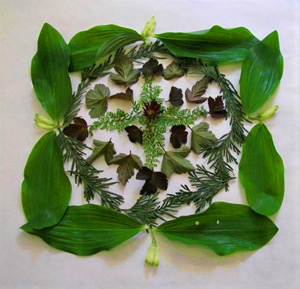Gardening and Horticulture in British Columbia

Gardening for British Columbians
Biogeoclimatic Zones of British Columbia
E-Flora: Electronic Atlas of the Plants of British Columbia
City Farmer - Urban Agriculture News
BC Garden Clubs https://bcgardenclubs.com
Therapeutic Horticulture & Horticultural Therapy
The following websites are good places to start any research on therapeutic horticulture, horticultural therapy, restorative garden design, or therapeutic garden design. They provide comprehensive answers to questions such as, "What is horticultural therapy?", "What is enabling garden design?", or, "What are the benefits of access to nature?".
CHTA Canadian Horticultural Therapy Association
AHTA American Horticultural Therapy Association
Thrive Social & Therapeutic Horticulture in the United Kingdom
Therapeutic Landscapes Network
Extensive evidence-based resources explore why and how therapeutic gardens
and landscapes promote health and well-being. You can get lost in this wonderful on-line library for hours.
A public Facebook page managed by a collective of people whose work focuses on gardening, farming, or exploring the natural landscape as a means to support health and wellness.
Horticultural Therapy Professional Development Program on Facebook
A public Facebook page managed by Ann Kent HTM that provides information about education programs, job opportunities, and links to contemporary research in garden and nature-based therapies.
Sources for information about plant toxicity, allergens, and dermatitis
Check at least three sources when researching a specific plant as cautionary information varies widely. Many poisonous plant information sites provide only a list of plant names, sometimes with a photo. Search for sites with comprehensive information for each plant.
Colorado State University - Guide to Poisonous Plants https://csuvth.colostate.edu/poisonous_plants/Plants/Search
Oregon State University https://landscapeplants.oregonstate.edu
North Carolina State University - Extension Gardener Plant Toolbox https://plants.ces.ncsu.edu/find_a_plant/
Wikipedia - List of poisonous plants https://en.wikipedia.org/wiki/List_of_poisonous_plants
University of California - Safe and Poisonous Garden Plants https://ucanr.edu/sites/poisonous_safe_plants/
Allergy-Free Gardening http://www.allergyfree-gardening.com/home.html
Other links for gardeners, naturalists, educators, and those working in TH or HT
Nature heals. A growing evidence base supports the importance of access to nature for human health and well-being. Here are a few links to help you explore nature-based activities for various communities:
Providence Farm - a therapeutic
community
This working organic farm near Duncan, BC, has offered
therapeutic horticulture programs for more than
35 years. Please check the website for updates as self-guided tours have been suspended due to the Covid-19 pandemic.
Habitat Conservation Trust Foundation - Wild BC https://www.hctfeducation.ca
Environmental programs focused on the study of nature and local ecology in BC. Many free activity resources as well as workshops and publications of interest to school teachers and educators.
Sierra Club - British Columbia
Instructional kits and evaluation models for
nature activity programs.
BC Nature - Federation of Naturalists
A wealth of information about local nature clubs in BC,
conservation and education programs, and
bird and plant checklists.
Nanaimo Community Gardens
Society
Many links to local, provincial, and national organizations that provide
information about community gardens
and
sustainable food systems.
Sustainable communities and sustainable horticulture
People look to gardening, where they live and work, as an important way of contributing to sustainability in their communities, now and for the future. Through nature walks and garden-based activities, students in the Horticultural Therapy Professional Development program consider gardens and habitat in the context of healthy, sustainable communities.